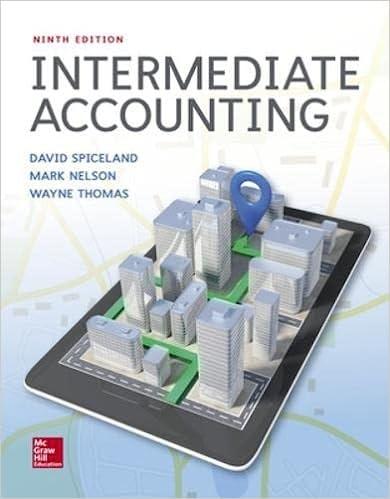Vodafone Group, Plc, headquartered in the United Kingdom, is one of the world's largest telecommunications companies. Excerpts
Question:
Vodafone Group, Plc, headquartered in the United Kingdom, is one of the world's largest telecommunications companies. Excerpts from the revenue recognition disclosure included in its 2015 annual report are reproduced below.
Note A1: Significant accounting policies
Revenue
Revenue is recognised to the extent the Group has delivered goods or rendered services under an agreement, the amount of revenue can be measured reliably and it is probable that the economic benefits associated with the transaction will flow to the Group. Revenue is measured at the fair value of the consideration received, exclusive of sales taxes and discounts.
The Group principally obtains revenue from providing the following telecommunication services: access charges, airtime usage, messaging, interconnect fees, data services and information provision, connection fees and equipment sales. Products and services may be sold separately or in bundled packages.
Revenue for access charges, airtime usage and messaging by contract customers is recognised as services are performed, with unbilled revenue resulting from services already provided accrued at the end of each period and unearned revenue from services to be provided in future periods deferred. Revenue from the sale of prepaid credit is deferred until such time as the customer uses the airtime, or the credit expires.
Revenue from interconnect fees is recognised at the time the services are performed.
Revenue from data services and information provision is recognised when the Group has performed the related service and, depending on the nature of the service, is recognised either at the gross amount billed to the customer or the amount receivable by the Group as commission for facilitating the service.
Customer connection revenue is recognised together with the related equipment revenue to the extent that the aggregate equipment and connection revenue does not exceed the fair value of the equipment delivered to the customer. Any customer connection revenue not recognised together with related equipment revenue is deferred and recognised over the period in which services are expected to be provided to the customer.
Revenue for device sales is recognised when the device is delivered to the end customer and the significant risk and rewards of ownership have transferred. For device sales made to intermediaries, revenue is recognised if the significant risks associated with the device are transferred to the intermediary and the intermediary has no general right to return the device to receive a refund. If the significant risks are not transferred, revenue recognition is deferred until sale of the device to an end customer by the intermediary or the expiry of the right of return.
In revenue arrangements including more than one deliverable, the arrangements are divided into separate units of accounting. Deliverables are considered separate units of accounting if the following two conditions are met: (1) the deliverable has value to the customer on a stand-alone basis and (2) there is evidence of the fair value of the item. The arrangement consideration is allocated to each separate unit of accounting based on its relative fair value.
Required:
On the basis of the information the disclosures provide, compare revenue recognition under IFRS (as applied by Vodafone) with that in the United States.
Step by Step Answer:

Intermediate Accounting
ISBN: 9781259722660
9th Edition
Authors: J. David Spiceland, James Sepe, Mark Nelson, Wayne Thomas





